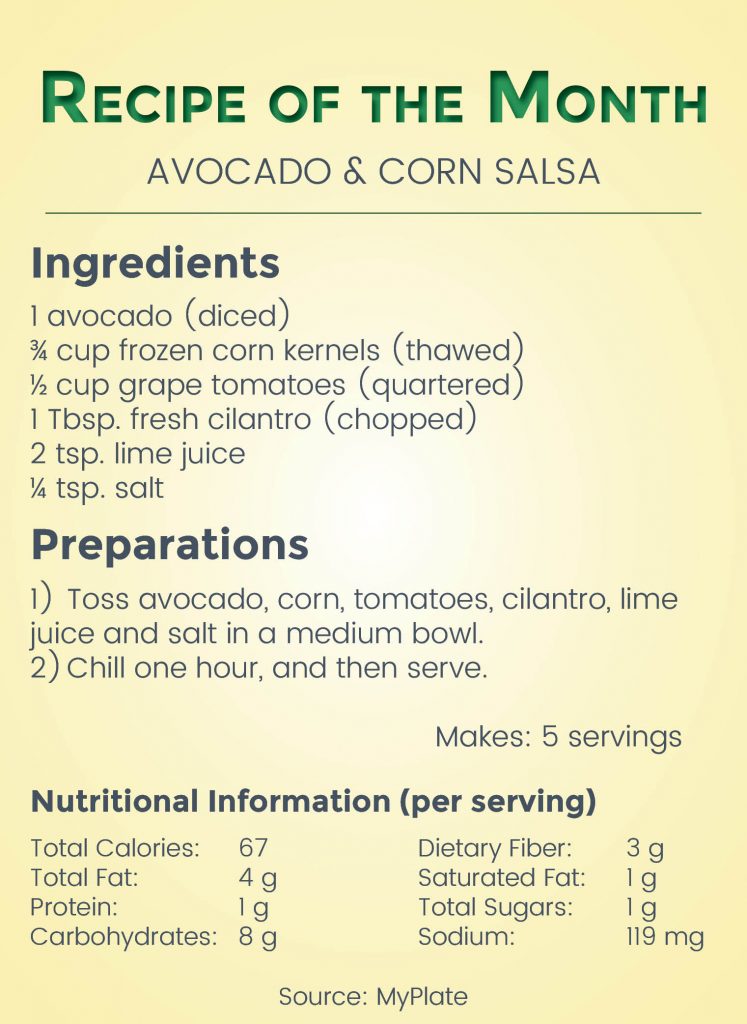EWG’s 2021 Dirty Dozen List Is Here
Nearly 70% of non-organic produce sold in the United States contains pesticide residue, according to the Environmental Working Group (EWG). Every year, the EWG ranks pesticide residue levels of fruits and vegetables based on samples taken by the U.S. Department of Agriculture and the Food and Drug Administration, publishing the results in the Shopper’s Guide to Pesticides in Produce.
Included in the report is a list of the most pesticide-tainted produce, which is known as the “Dirty Dozen.” For 2021, the following were on this list:
- Strawberries
- Spinach
- Kale, collard and mustard greens
- Nectarines
- Apples
- Grapes
- Cherries
- Peaches
- Pears
- Bell and hot peppers
- Celery
- Tomatoes
In addition to the Dirty Dozen, the EWG publishes the “Clean Fifteen,” highlighting the “cleanest” produce. For 2021, avocados and sweet corn topped the list. These lists can help you Live Well Work Well in July 2021.
What Can You Do?
Most Americans aren’t eating enough fruits and vegetables daily. Don’t let the Dirty Dozen scare you away from eating fruits and veggies—all properly handled fresh produce, whether organic or not, is believed to be safe to eat.

To remove any pesticide residue, simply wash your fresh produce under running tap water for 30 seconds. If you’re still uneasy about pesticides, buy the frozen or canned versions of your favorite produce as an alternative option. Frozen fruits and vegetables are just as nutritious for you, so find what works best for your household.
If you have any questions or concerns, talk to your doctor.
Summer Picnic Safety Tips
One of the best ways to celebrate summer is to get outside and enjoy good food with friends and family. As nationwide COVID-19 cases decline, COVID-19 vaccination rates increase, and states relax their COVID-19 restrictions, picnics and barbecues will likely be a summertime staple this year.
However, if you aren’t careful about handling foods during these cookouts, you’re putting yourself and others at risk for potential food-related illnesses. Stay safe with these simple tips:
- Wash cooking equipment, dishes and utensils between uses. Be sure to clean the grill’s surface after each use and to wash cutting boards that had raw meat on them.
- Store all perishables in a cooler with ice on top, not just underneath. Use one cooler for drinks and another for food. Never eat anything that has been left out of a refrigerator or cooler for more than two hours.
- Invest in a meat thermometer so you can make sure all meat is cooked to the proper internal temperature.
Warmer temperatures require extra attention to food safety when cooking and eating outdoors. Visit FoodSafey.gov to learn more about food safety practices.

Leave Your Shoes at the Door
You may be tracking disease-causing germs into your home if you regularly keep your shoes on inside. Research found that the outside of your shoes can be a carrier for viruses and bacteria, including E. coli.
Although this level of contamination is a low health threat for most healthy adults, you can reduce the unnecessary spread of germs in your living space by:
- Taking off your shoes at the door
- Washing your hands immediately if you removed your shoes with your hands
- Cleaning your shoes according to the manufacturer’s instructions
In general, regardless if it’s your home or someone else’s place, it’s important to remove shoes if there are young children crawling on floors or people in the home whose immune systems are compromised. When in doubt, ask the host if you should take off your shoes.

Check out last month’s edition of Live Well Work Well – June 2021. And for more ways to Live Well Work Well in July 2021, check out our blog.
All of us here at CoverLink wish you continued health and safety this year!
